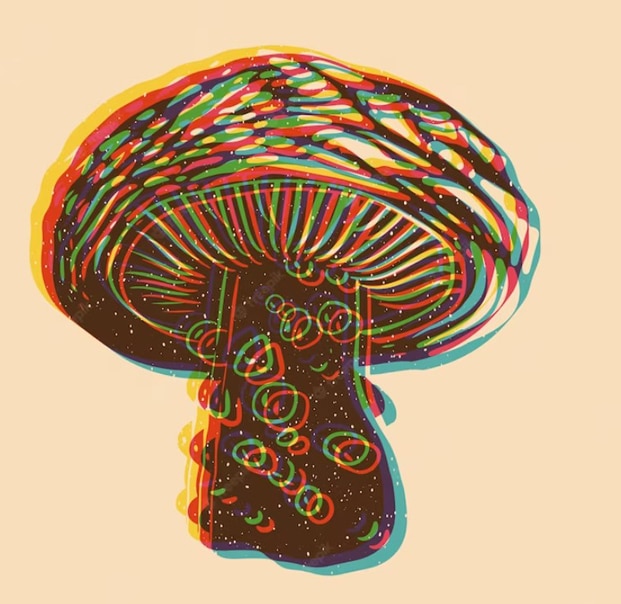What Is the Current Legal Landscape of the Psychedelics Industry?
The psychedelics industry is undergoing rapid transformation, influenced by evolving research, changing public perceptions, and shifting regulatory frameworks. As stakeholders navigate these developments, understanding the current legal landscape is crucial for addressing challenges and seizing opportunities. This summary encapsulates insights from industry leaders on the pressing legal issues and the path forward for psychedelics in a dynamic environment.

Article Summary
- 8 Industry Experts Weigh in on Current Psychedelics Legal Issues
- Savva Kerdemelidis, Crowd Funded Cures
- Yasmeen Sadain, TheraPsil
- Nicholas Kadysh, PharmAla Biotech
- Yitz Klien, Keefx
- Hillary Lin, MD, Curio
- Ken Belotsky, Negev Capital
- Kimberly Adams, Holo Therapeutics
- Dr. Prash P., Enosis Therapeutics
Psychedelics is an industry amid a revolution. Research, public perception, and even regulations are shifting at an incredible pace, paving the way for a nascent industry to rise in a matter of years. During such change, it can be easy to lose track of where we currently are, not where we’ll be in six months, one year, or five years.
We reached out to industry leaders to take the pulse of the current psychedelics legal issues, challenges, and changes on the horizon. Here’s what they had to say.
8 Industry Experts Weigh in on Current Psychedelics Legal Issues
Savva Kerdemelidis, Crowd Funded Cures
One of the core barriers to innovation for psychedelics and plant medicines, including ketamine, psilocybin, and cannabis, is the difficulty of enforcing a monopoly price using patents when the “active ingredient” is available off-patent for a low cost. This is the same market failure recognized for repurposing generic drugs to find new uses — people can simply take the off-patent generic drug for the unapproved (off-label) new use.
While it is possible to patent a reformulated version of a psychedelic, as Compass Pathways did with the crystalline psilocybin Polymorph A, this is not a viable long-term strategy. This is because the off-patent natural form of psilocybin is likely to be just as effective and could even be safer due to its proven long-term use in traditional medicine. Similarly, cannabis flower is regularly used off-label to treat pain but has limited incentives to fund large clinical trials under the patent system.
However, it is possible to overcome these challenges and market failures by innovating around pharmaceutical reimbursement and the design of randomized controlled trials (RCTs). In particular, interventional pharmacoeconomic (IVCE) RCTs compare the low-cost off-patent version of a psychedelic (e.g., ketamine for treatment-resistant depression) with the expensive patented version (e.g., esketamine), where the price difference means it has a net-negative cost for a health insurer. It is also possible to use Pay-For-Success (PFS) contracts (aka Advance Market Commitments) to incentivize sponsors to fund clinical trials for off-patent psychedelics and plant medicines such as cannabis, subject to FDA approval, without requiring an enforceable monopoly.
Yasmeen Sadain, TheraPsil
Currently, in Canada, TheraPsil is supporting eight patients and has filed a constitutional challenge for medical regulations for psilocybin-assisted psychotherapy for Canadians in medical need. The current legal access pathways are failing Canadians, and many of them are suffering and, in many cases, dying before getting access to their medicine. In Canada, it is currently easier to access MAiD, than it is to access a mushroom. If Canadians have the right to die, they should have the right to try.
Our team is working tirelessly to expand access across the country by advocating for patient rights and training healthcare professionals who can support these patients when regulations are put in place. Our government is causing patients to suffer unnecessarily; access to mushrooms needs to be made by a patient and their doctors, not by patients and bureaucrats at Health Canada.
Nicholas Kadysh, PharmAla Biotech
There are two main acts I see affecting the current legal landscape of the psychedelics industry.
- Right to Try Act: put forth by Corey Booker and Rand Paul, passed in 2018. The Right to Try Act allows people who are terminally ill to try any compound they believe will aid them without FDA approval or participating in a clinical trial.
- Breakthrough Therapies Act: Another bill introduced that allows for Schedule 1 drugs to be transitioned to Schedule 2 if there is a breakthrough during the 2nd stage of that compound’s clinical trial.
Yitz Klien, Keefx
Regulation varies from state to state. Much development needs to be completed along with a perspective shift at the federal level that excludes lobbies from pharma companies and excludes politics’ rather education-based approach for the federal government and a real focus on the absolute data.
Hillary Lin, MD, Curio
Regarding ketamine, there are questions about the at-home prescription care laws changing with the end of the pandemic. There, of course, are challenges due to the other psychedelics being federally illegal still. That is all changing but in a positive direction in most cases.
Ken Belotsky, Negev Capital
The current legal challenges in the psychedelic sector include the following:
- Schedule I classification: Many psychedelics, including psilocybin, LSD, and DMT, are currently classified as Schedule I substances, meaning they have a high potential for abuse and no currently accepted medical use. This classification makes it difficult for researchers to study these compounds and for companies to develop and market them as therapeutic products.
- Clinical development: Developing psychedelics as therapeutics is complex and costly, requiring extensive clinical trials to demonstrate safety and efficacy. The lack of prior clinical trials and the Schedule I classification makes this process even more challenging.
- Intellectual property (IP) protection: There are few patent protections for classical psychedelics (Generation I), which makes it difficult for companies to protect their investments in research and development. This can also make it difficult for companies to attract investors, as they may not be able to offer the same level of IP protection as other drug development companies.
- Legalization and regulation: While some jurisdictions have decriminalized or legalized psychedelics, the legal status of these compounds varies widely across the United States and the world. This can make it difficult for companies to navigate the regulatory landscape and conduct research studies.
- Public perceptions: Psychedelics have a long history of being associated with counterculture and recreational use, which has led to a certain level of stigma. Changing public perceptions and educating the public about the therapeutic potential of psychedelics is an ongoing challenge.
Kimberly Adams, Holo Therapeutics
The lack of legal access is similar to cannabis in that they are outliers. Once things are legal, those who are really experienced will likely be overshadowed by those who can throw buckets of cash at the situation.
The main difference is that these substances are far more damaging than cannabis and can cause long-term effects, and the awareness of how they interact with the human mind is only known by those who have experienced them over time. If more people getting trained do not have legal access, they will just be a bunch of therapists with no experience. Traditional therapy requires practicum and hours with clients. How can they get these hours and really be trained?
Additionally, the reality of the drug cartel’s stranglehold on all drugs is real. I live in Mexico, and anyone who serves here must pay the cartel first or risk severe consequences. We have to look at ending the drug war to resolve this, not just placing it in the hands of pharma.
Dr. Prash P., Enosis Therapeutics
I’m interested in where decriminalization is directing the industry. The industry has currently been supported by medicalization as the only route to mainstream acceptance and industry.
However, decriminalization opens up two major pathways:
- The recreational market is not dependent on the same rigors of clinical trial validation that pharmaceutical use is.
- Retreat centers and optimization (rather than pathology-based) use cases.
This is likely to see a leaching of importance from the pure pharmaceutical model, for better or worse. While the risk of reduced quality control is a concern, the diversion of funding and resources from pure drug development due to decreased revenue multiples could have a positive follow-on effect of rounding out the development of the industry as a whole.
All the experts agree— the psychedelics industry is moving quickly and faces challenges from many angles. Risk management is an integral part of the long-term success of any company, and investing in the right psychedelics insurance policies can help your company ride the waves of change.
Protecting your psychedelics company can seem confusing; however, we’re a full-service insurance brokerage working with carriers worldwide to offer you the best coverage possible. We’re here to help! Please reach out to us today by emailing info@alpharoot.com or calling 646-854-1093 for a customized letter of commitment or learning more about your cannabis insurance options.




